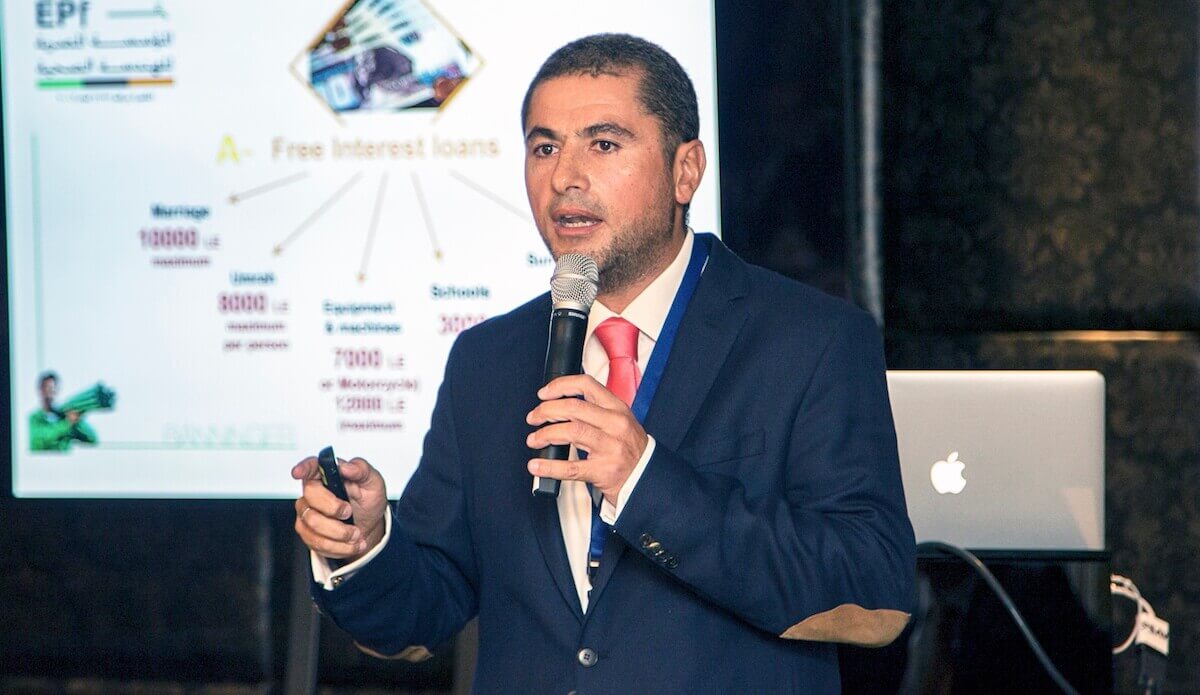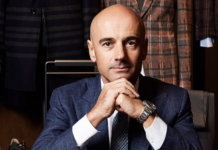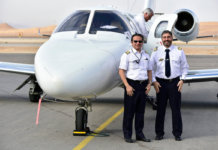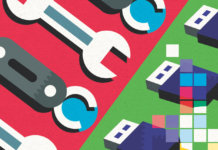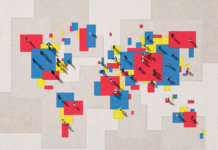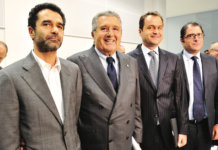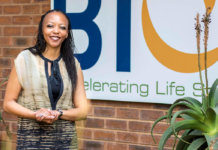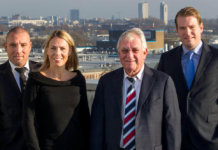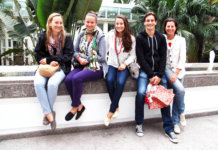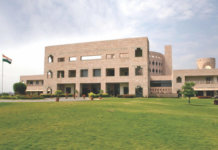Interview with Omar Safeyeldine, Founder of EGIC, Egypt
Omar Safeyeldine is living proof that business leadership in the 21st century extends far beyond the boardroom and the executive suite. As CEO of the Cairo-based EGIC, Safeyeldine oversees one of the most successful businesses in the region.
Established in 1991, EGIC manufactures and markets plumbing-related solutions specialising in PVC Pipes, PPR Pipes, Fittings, and Polyethylene. Over time, EGIC has pioneered plastic water and sewage drainage pipes that can withstand the extreme conditions of Egypt. Today the company has four factories and more than 2500 employees.
But it is what Omar Safeyeldine is doing for his employees and the community in which they live that exudes modern-day leadership. With an emphasis on transparency and ethics, Safeyeldine ensures EGIC pays taxes so the government can provide the quality of services the people deserve. He has gone above and beyond in employee training and compensation. And as a social reformer, he has made his voice heard as he seeks an impact on what is happening in the community at large.
Tharawat Magazine sat down with Omar to discuss his company’s early days, the obligation of maintaining business ethics in a challenging environment, and why social reform is a big part of what EGIC is about.
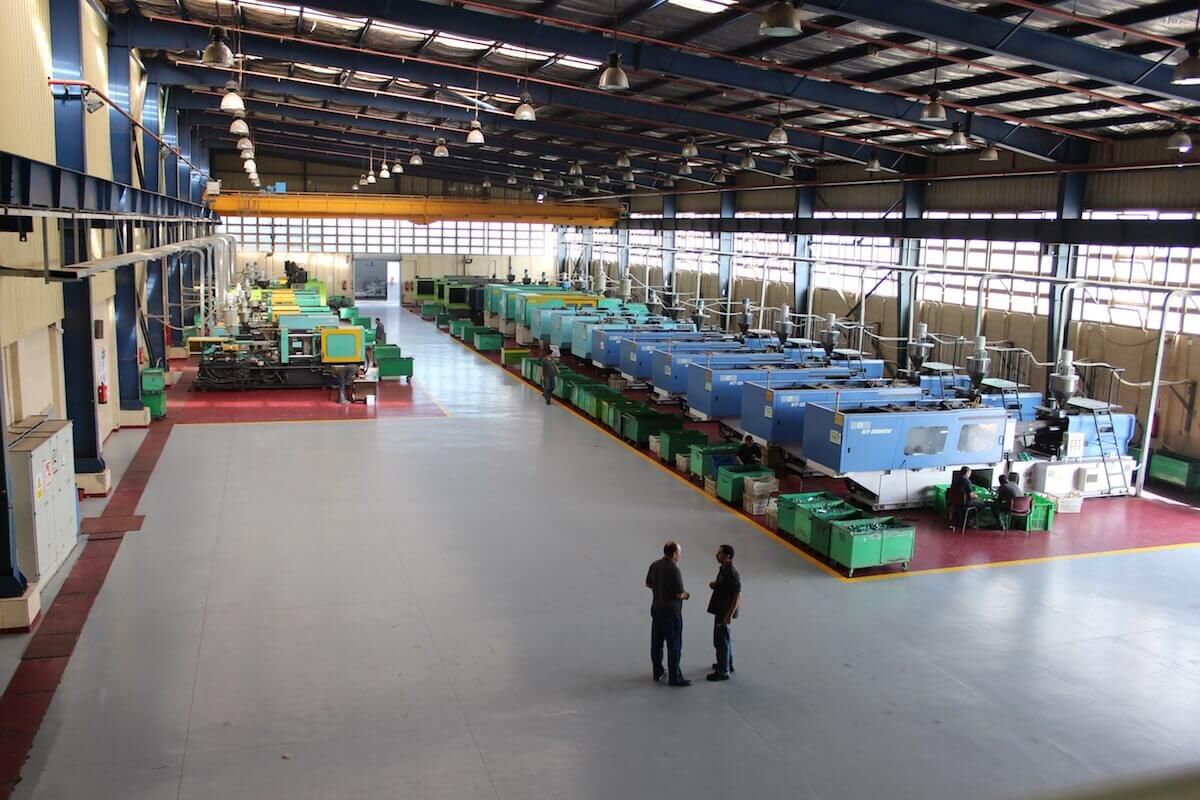
Tell us about your entrepreneurial journey and how EGIC came about.
I started in the garage of my Grandfather over 30 years ago; it was a small workshop to make boards that I was selling to the schools and the universities. I continued to do this until I finished engineering school in 1991. I started my first business with 15 of my colleagues selling computer paper and accessories in Egypt to the companies who were using computers at that time. This lasted for around eight months, and I set out on my own at the end of 1991.
I began in the slums of Giza, trading electrical equipment, cables, or whatever the buildings needed. I was working 24/7, not taking any vacation for the first five years. I was very ambitious to grow my business but the big factories were supplying all the big projects. So, I heard about an exhibition in Germany for electrical equipment. I went and by coincidence, another friend told me that at the same time there was a plumbing and water supply exhibition in Frankfurt. There I found a plastic pipe that can withstand hot and cold water, so I brought samples to Egypt.
In 1995, I started promoting plastic piping for hot water. We were the first to do that in Egypt. It started to grow organically, and after around ten years of the trading business, we began to manufacture by ourselves. Then everything grew from there.
What are EGIC’s main activities?
We have plumbing solutions for all supply and drainage needs inside and around all building types – from houses and hotels, to compounds. From the moment we take water from the municipality until we return it as sewage, we have solutions of unmatchable quality.
As of today, we have a world class copper foundry and we process plastics in three factories in Egypt and a factory near Frankfurt in Germany.
When you started out, did you have any role models of leaders in your head, and has that changed over these last 30 years?
I was deeply influenced by my father and grandmother.
I had learned by example from my father how to push myself to the limit to add the maximum possible value to the world around me. He was the supreme leader of his area and he was dedicating all his time and money to unconditionally serve the community.
My Grandmother was always telling me about my Grandfather and his brothers. She had seen how they had built by far the biggest construction company in the Middle East and Africa and that they were entrepreneurial role models for all of the MENA region. They started from scratch and became the biggest contractor in their hometown of Ismailia in the 1940s and early 1950s. They were the first contractors to go to the Gulf and they started building in Saudi Arabia, Kuwait, Emirates, and Libya. They were the largest contractors in around 13 countries in Africa and the Middle East. They were the first Arab company to build bridges, to build cement factories, to build all the infrastructure. So, I was excited by their achievements. And at the same time, they were very nationalistic about the Arab world. There was a social aspect to everything they did.
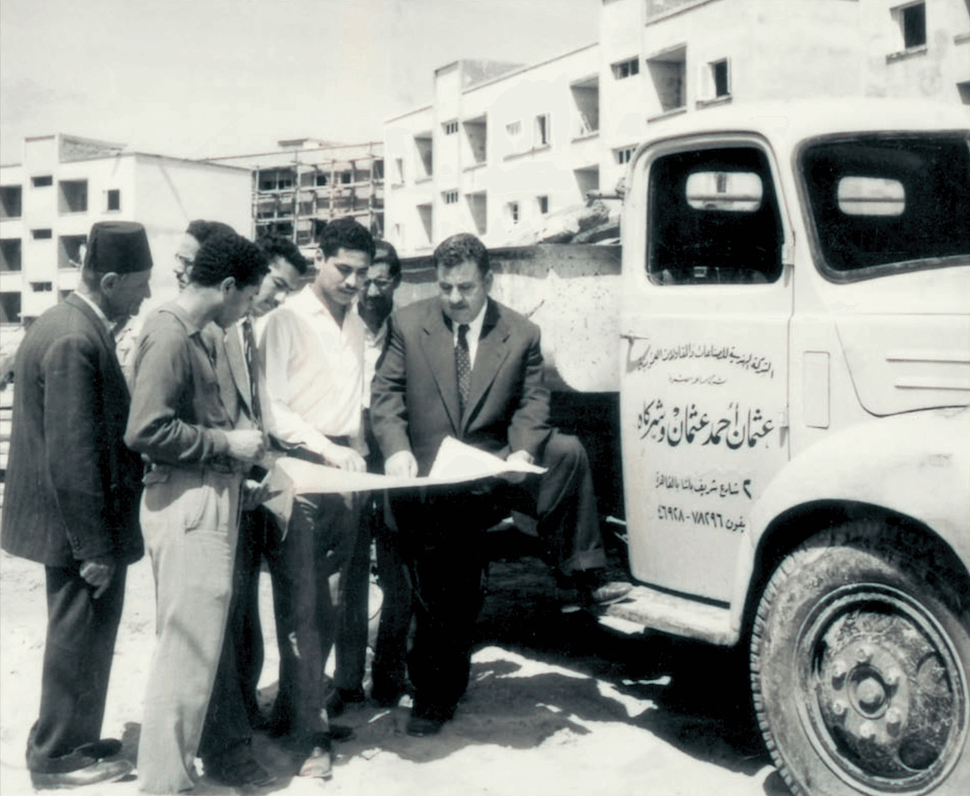
From the beginning, my own leadership style was highly result-oriented, and very persistent. I believe in never giving up, and showing courage, agility, innovation, emotional intelligence and social responsibility. These are all thing that I learnt from my father, my grandfather and his brothers.
Egypt has been through a lot in the last 30 years, what has that meant for your vision, in trying to push your own company forward?
I was deeply influenced by it. The whole region is unstable with lots of wars and turmoils – doing business often feels very swampy. So, you really need to have courage, and it’s extremely hard.
15 years after I started my business in Egypt, the son of the a very powerful political leader in this time made the decision to enter this industry, and he wanted to use his muscle to stop us. I had to keep on fighting for our company, and not give up until his father was out of power.
I always insist on acting according to the laws. I came up with a manifesto for EGIC that is based on five principles. We adhere to these principles with heart and soul. All our decisions, acts and investments are made in accordance to our five principles. We start all our meetings and quarter EGIC gatherings either with our team (our small family) or with our distributors and plumbers (our bigger family) by elaborating on our five principles.
The first principle is our commitment to our country, Egypt – the people and the environment. We must always work according to the law. Here in Egypt, only 15 percent of the businesses are paying taxes. I believe that we are working while preserving the environment to pay taxes so the country can grow. Moreover, we serve our community through our three CSR foundations: the Nahdet Bani Suef foundation(NBF), the Egyptian Plumbing foundation(EPF) and our new baby, the handicrafts Egyptian Foundation. More than 300 people are working in our 3 foundations and the team is still growing.
Secondly, being a responsible owner means we are responsible for our employees whatever happens. We should always improve their market value by giving them lots of training and exposing them to new challenges and initiatives so they continue to learn and to be more professional. We are also responsible for them and their families in terms of their essential needs including education and medical.
Thirdly, we are committed to deliver top German quality and a full guarantee to all our end users. We pioneered the novel concept that we are responsible for our products even after they are mounted inside your house. All our solutions were introduced in the market for the first time. Launching new solutions that the market has never experienced before is in EGIC’s DNA.
The fourth is our commitment to our distributors and plumbers. We have a responsibility to help them grow. Because this company has the same philosophy as my Grandfather and his brothers, we are here to build and work as a family and serve the community and to make money for all the ecosystem. For over ten years we have pioneered a very unique and innovative approach to our whole ecosystem that we call ‘the EGIC way’.
What is the EGIC Way?
The EGIC Way consists in bringing plumbers in, training them, and inspecting and guaranteeing all their workmanship. So, it’s an EGIC promise that no leakage will happen in the coming 10 years in anyone’s property.
There are no real standards like in Europe. If someone is a plumber, it is because his father or his brother is a plumber and then they just start to do it without a formal education. So we introduced a standard that was not there in the market, we trained them and we now have a pension fund, life and accident insurance, medical coverage, seasonal marriage loans and we make small sustainable projects for the families of the plumbers who passed away or had a major accident that do not allow them to continue to work to support their families through our Egyptian Plumbing Foundation (EPF). The EGIC Way together with EPF are currently serving more than 35 000 plumbers and their families.
The fifth principle, is our commitment to our shareholders to continually sustain the business through the appropriate controls and governance, grow the business and outperform the plumbing industry worldwide.
All our thoughts, decisions, acts & investments should fulfil, strengthen and totally align with these five principles and realise them in the ground.
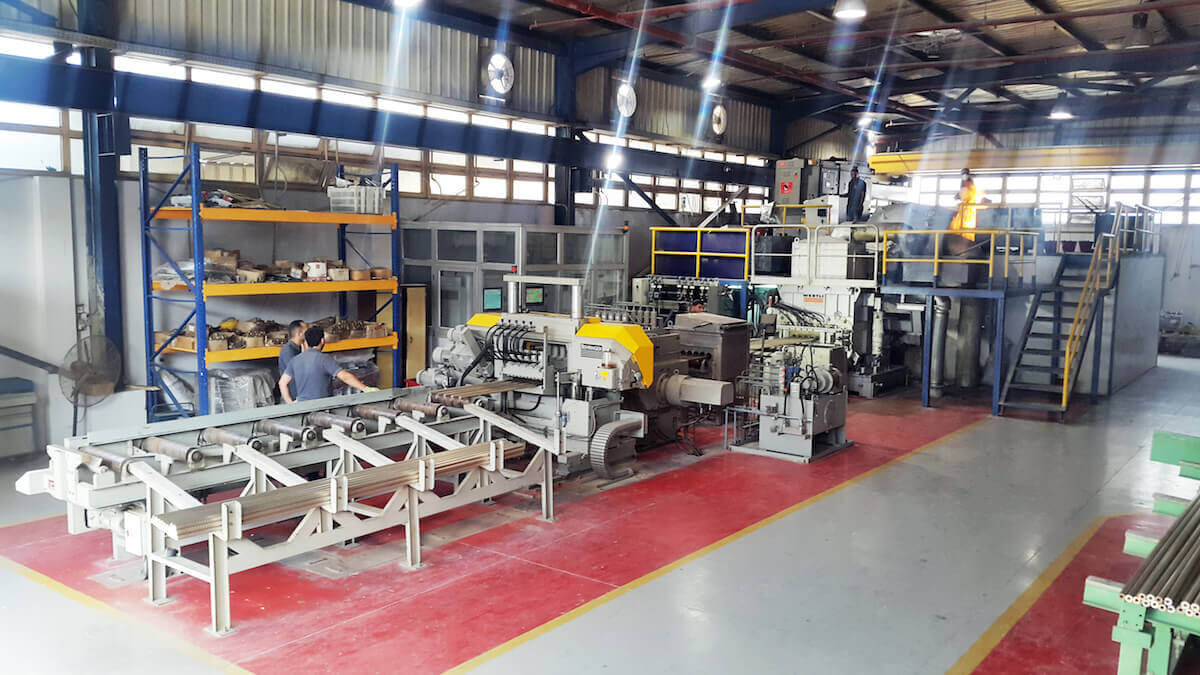
Do you feel like generally, the business community is having the right kind of conversation around leadership in a time when new technology is disrupting traditional industries?
The conversation around leadership should change because we are still living in the past. With Artificial Intelligence, the digital revolution and the technology that is coming, we don’t need all the factories that we currently have to meet production demands.
In EGIC, we are reshaping the interaction with the customers. We are automating everything and knowing more about the customer, so we are focusing on it. I have already reached out to American contacts about the 3D printers and will visit them next March. We’ve already transitioned some of our machines to robotics. We now have a state of art machine that can give us one brass fitting very precisely machined from outside and inside each two seconds replacing the complicated existing system which was producing one piece each 30 seconds.
This forced us to lay off about 40 employees. We compensated them significantly above the compensation required by law and gave them the opportunity to go to our foundation, and access microfinance so they could set themselves up in business.
[ms-protect-content id=”4069,4129″]
Can you tell us more about your foundations? What was the impetus behind them?
We have three foundations, one of them is the biggest one in the Bani Suef governorate in the South of Egypt where our first factory started.
I call it social leadership because we are using entrepreneurial and leadership activities to resolve social issues. The goal is solving social problems that the community is suffering from. These are very important and vital problems and we spread our solutions to the community so they can take what we have done and replicate it.
For example, last year we launched two models after more than seven years of hard work, convincing the authorities and community through a lot of experimentation to make it happen.
Firstly, we launched a new sewage treatment plant because 90 percent of diseases are caused by untreated sewage systems. As a country, we cannot afford to cure all the people, but we can afford to prevent the disease from happening. So we brought in a system that was invented more than 60 years ago but did not exist here in Egypt. The government has finally approved it to be implemented after that had seen our first sewage treatment plant functioning and delivering irrigation clean water out of sewage water in the same place. The output water was tested and approved by the ministry of health to irrigate fruit trees and even green eatable leaves. Moreover, we sell natural compost fertilizers. For the first time, the sewage plant is managed by the community in the villages and inspected by the health and the environment authorities following an appropriate control and governance procedure.
The second model is our dairy factory inside the villages producing white cheese, yogurt and milk of high quality and hygiene while lifting up the whole community.
How do you deal with the discouraging slowness of things, like seven years to set up a system that has been around for 60 years? In your Philosophy of leadership, what do you do that allows you to persist and to persevere?
Mostly it’s the state of mind that I am here to add value. I am a human being so naturally, I have lots of doubts. But my routine way of life is always giving me hope. I set goals to get out all the negative energy. Your way of life should clean out all the negativity that we have in the environment.
We know that running a huge family-owned business can bring a lot of problems. A lot of the big names are family businesses that we can be proud of, but we also have a lot of issues attached to nepotism and the fact that we give each other undue advantages for being family, and often that leads to the basis for corruption as well. For you, I’m sure many of your suppliers are family businesses too—do you think of your business as a family business?
Of course, but you should know that the nationalisation that happened in 1959 destroyed a lot of family businesses. There were great families working in Egypt. Egypt was the pearl of the Middle East and was the industrial base of the Middle East. A significant number the people who are successful again are entrepreneurs from big family names but who started from scratch, like me. So I try to preserve the wealth for the country and for the community to keep this business alive.
One of my biggest motivations is to grow outside Egypt, and make EGIC a regional leader. I have recently partnered with a London based African fund (DPI) that is working in 27 countries in Africa. I lean on our partners now to make it happen and try to bring our unique value proposition to the rest of the continent. So, we can grow the business to become regional in the coming five years.
We will also continue to have a social impact wherever we go. I will do whatever I can for the new people we are going to hire, in the other countries I am going to work in. We will always continue to serve the community, to create thanks to God new ways to make life better and to push myself and my team to the limit to add the most possible value to all our stakeholders.
[/ms-protect-content]


